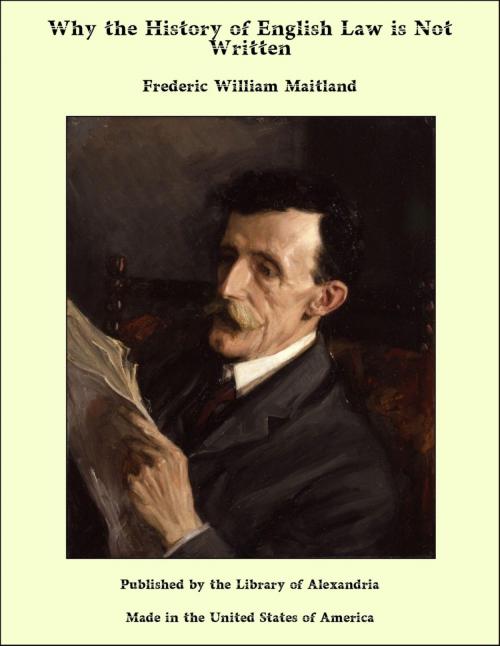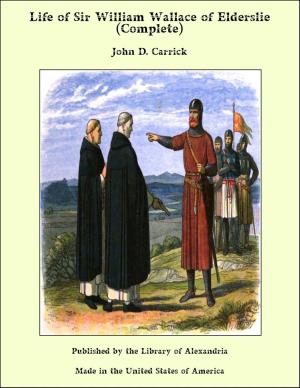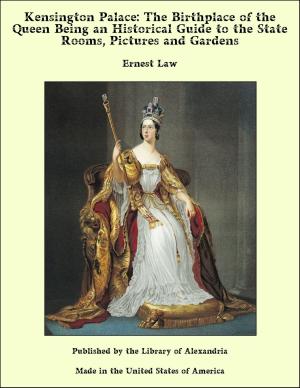Why the History of English Law is Not Written
Nonfiction, Religion & Spirituality, New Age, History, Fiction & Literature| Author: | Frederic William Maitland | ISBN: | 9781465592941 |
| Publisher: | Library of Alexandria | Publication: | March 8, 2015 |
| Imprint: | Language: | English |
| Author: | Frederic William Maitland |
| ISBN: | 9781465592941 |
| Publisher: | Library of Alexandria |
| Publication: | March 8, 2015 |
| Imprint: | |
| Language: | English |
Our patience of centennial celebrations has been somewhat severely tasked this year, nevertheless it may be allowed me to remind you that next year will see the seven-hundredth birthday of English legal memory. The doctrine that our memory goes back to the coronation of Richard I. and no further is of course a highly technical doctrine, the outcome of a statute of limitation, capricious as all such statutes must be; still in a certain sense it is curiously true. If we must fix a date at which English law becomes articulate, begins to speak to us clearly and continuously, the 3rd of September 1189 is perhaps the best date that we can choose. The writer whom we call Glanvill had just finished the first textbook that would become a permanent classic for English lawyers; some clerk was just going to write the earliest plea-roll that would come to our hands; in a superb series of such rolls law was beginning to have a continuous written memory, a memory that we can still take in our hands and handle. I would not for one moment speak slightingly of the memorials of an earlier time, only I would lay stress on the fact that before the end of the twelfth century our law is becoming very clear and well attested. When another century has gone by and we are in Edward I.'s reign the materials for legal history, materials of the most authoritative and authentic kind, are already an overwhelming mass; perhaps no one man will ever read them all. We might know the law of Edward's time in very minute detail; the more we know the less ready shall we be to say that there is anything unknowable. The practical limit set to our knowledge is not set by any lack of evidence, it is the limit of our leisure, our strength, our studiousness, our curiosity. Seven hundred years of judicial records, six hundred years of law reports; think how long a time seven centuries would be in the history of Roman Law.
Our patience of centennial celebrations has been somewhat severely tasked this year, nevertheless it may be allowed me to remind you that next year will see the seven-hundredth birthday of English legal memory. The doctrine that our memory goes back to the coronation of Richard I. and no further is of course a highly technical doctrine, the outcome of a statute of limitation, capricious as all such statutes must be; still in a certain sense it is curiously true. If we must fix a date at which English law becomes articulate, begins to speak to us clearly and continuously, the 3rd of September 1189 is perhaps the best date that we can choose. The writer whom we call Glanvill had just finished the first textbook that would become a permanent classic for English lawyers; some clerk was just going to write the earliest plea-roll that would come to our hands; in a superb series of such rolls law was beginning to have a continuous written memory, a memory that we can still take in our hands and handle. I would not for one moment speak slightingly of the memorials of an earlier time, only I would lay stress on the fact that before the end of the twelfth century our law is becoming very clear and well attested. When another century has gone by and we are in Edward I.'s reign the materials for legal history, materials of the most authoritative and authentic kind, are already an overwhelming mass; perhaps no one man will ever read them all. We might know the law of Edward's time in very minute detail; the more we know the less ready shall we be to say that there is anything unknowable. The practical limit set to our knowledge is not set by any lack of evidence, it is the limit of our leisure, our strength, our studiousness, our curiosity. Seven hundred years of judicial records, six hundred years of law reports; think how long a time seven centuries would be in the history of Roman Law.















